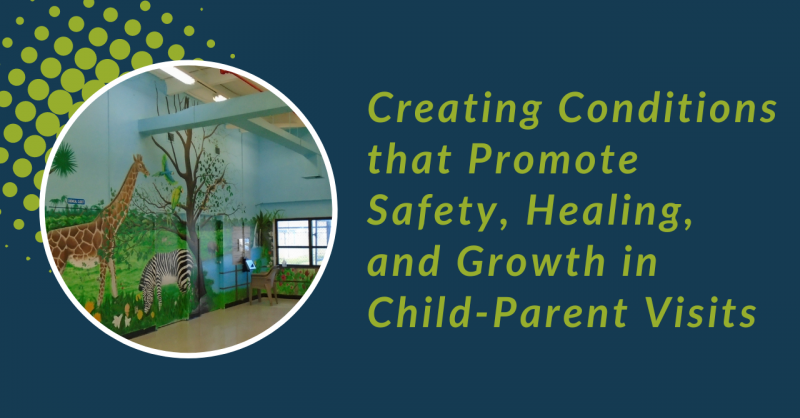Youth who receive special education services under the Individuals with Disabilities Education Act (IDEA 2004) and especially young adults of transition age, should be involved in planning for life after high school as early as possible and no later than age 16. Transition services should stem from the individual youth’s needs and strengths, ensuring that planning takes into account his or her interests, preferences, and desires for the future.
Tip Sheet for Youth: Youth Supporting Fellow Youth Who Have an Incarcerated Parent
Download the PDF (2 pages).
This tip sheet was written BY youth who have or have had incarcerated parents FOR youth who have incarcerated parents. The purpose is to provide words of support and encouragement.
In June 2016, the federal government hosted a listening session with youth from across the country who have or have had an incarcerated parent. The listening session brought together 19 youth, ages 15 to 23, with a diverse range of experiences to discuss the challenges they had during their parent's incarceration and their ideas for how the government could better support them and their families. This tip sheet is a product of that listening session.
You are not alone. Here are some things many of us experience:
- We rely on our own inner strength
- We often grow up too soon taking on responsibilities:
- Taking care of younger siblings
- Getting jobs to help with family finances
- Obtaining services such as physical and mental healthcare
- Navigating systems and avoiding negative attention from Child Welfare or Human Services who might take us or our siblings away
- We love our parents, even though they have made mistakes. We miss them during:
- Big events like having our parent there for holidays and graduation
- Small activities like having our parent there to help with homework and going to our sporting event
- Everyday opportunities for having our parent as a role model
- We are misjudged by many and negatively judged because of our parent(s) or our parent’s actions
- We are sometimes told we will turn out like our parent(s) and we are constantly fighting against and running from that judgement
- We have different experiences than other youth whose parent is absent for another reason like divorce:
- Not being able to pick up the phone and talk to our parent any time we want
- Not being able to hug our parent during a visit
- Being judged differently and feeling shame and stigma because of those judgments
- We have different experiences even from each other:
- Living arrangements before the incarceration
- Relationship status with our parent before the incarceration
- Being told the truth or lies about the incarceration
- Involvement with child welfare during the incarceration
- Changes in financial stability during the incarceration
- We are not different from other youth in that we are young people, too, with the same needs and wants:
- To be loved
- To have support
- To be successful
- To have friends
- We do not have control over the situation, which is difficult:
- We don’t know what to expect with the incarceration process or when visiting our parent in a facility
- We don’t know with any certainty when we will be able to talk to or see our parent again
Advice for Youth from Youth who have or have had an incarcerated parent:
- Seek out resource lists on websites from government or other trusted organizations
- Reach out for help if you need it
- Look to a trusted adult such as youth group leader, school counselor, or mentor for help
- Advocate for help that is relevant to your situation — let them know what you need
- Ask for help finding a counselor who is experienced with issues of incarceration
- Look for programs that have specific services for youth with an incarcerated parent and are familiar with your challenges and needs
- Look for programs that offer transportation to help you visit your parent
- Find after-school programs, weekend activities, mentoring, or other programs
- Find ways to cope with the challenges of having an incarcerated parent
- Get involved with activities like sports or athletics, community service volunteering, etc.
- Find ways to express yourself like writing, art, music, design, video/filmmaking, etc.
- Know that you are not alone — 2.7 million youth have an incarcerated parent
- Find a support group to be able to talk with others going through the same thing
- Know there are opportunities to be an advocate
- Channel your emotions (which might include anger and pain) into making a positive change through advocacy
- Work with organizations to suggest that they include youth with incarcerated parents on planning committees and boards
- Develop well thought-out messages when requesting change in a policy or procedure that affects you
- Be part of efforts to create and expand visiting and mentoring programs
- Advocate for financial backing and funding for effective programs
» Return to the overview of the Listening Session Summary page.
» Return to Youth Perspectives page.
Announcements
Collaboration Profiles
Feature Articles
Resources
Technical Assistance
Tools & Guides
Videos & Podcasts
Webinars & Presentations
Websites
Youth Topics
Research links early leadership with increased self-efficacy and suggests that leadership can help youth to develop decision making and interpersonal skills that support successes in the workforce and adulthood. In addition, young leaders tend to be more involved in their communities, and have lower dropout rates than their peers. Youth leaders also show considerable benefits for their communities, providing valuable insight into the needs and interests of young people
Statistics reflecting the number of youth suffering from mental health, substance abuse, and co-occurring disorders highlight the necessity for schools, families, support staff, and communities to work together to develop targeted, coordinated, and comprehensive transition plans for young people with a history of mental health needs and/or substance abuse.
Nearly 30,000 youth aged out of foster care in Fiscal Year 2009, which represents nine percent of the young people involved in the foster care system that year. This transition can be challenging for youth, especially youth who have grown up in the child welfare system.
Research has demonstrated that as many as one in five children/youth have a diagnosable mental health disorder. Read about how coordination between public service agencies can improve treatment for these youth.
Civic engagement has the potential to empower young adults, increase their self-determination, and give them the skills and self-confidence they need to enter the workforce. Read about one youth’s experience in AmeriCorps National Civilian Community Corps (NCCC).










